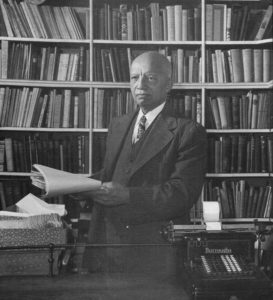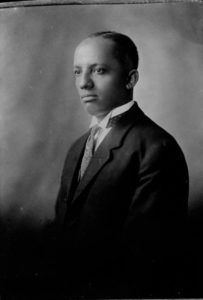Dr. Carter G. Woodson was born in the Reconstruction era to former slave parents in Virginia. He spent his early years sharecropping, mining, and doing odd jobs until eventually becoming the “Father of Black History.”
In order to contribute to the welfare of his family, Woodson worked most of his childhood. Even though he would start high-school late, he finished in just two years as he was already self-taught in basic reading, writing, and arithmetic. Carter would go on to earn two degrees from the University of Chicago before receiving his doctorate from Harvard University. He was only the second African American to do so, after W.E.B. Du Bois.
His studies and travel illuminated the immense ignorance about the role of African Americans in American history. He was convinced that young black children were not being taught their own heritage to any meaningful extent.
Woodson wrote, “[African-American contributions] were overlooked, ignored, and even suppressed by the writers of history textbooks and the teachers who use them” in The Journal of Negro History, April 1926.
Recognizing the need and facing ostracism from his white historian counterparts, Woodson created his own association – the Association for the Study of Negro Life and History (ASNLH). Co-founded by minister Jesse Moorland, the goal was to place African American historical contributions front and center.
In February of 1926, he announced the first Negro History Week. He chose February because both Abraham Lincoln and Frederick Douglas were born in this month. By the 1960s, with momentum from universities and the Civil Rights Movement, Negro History Week evolved into Black History Month. In 1976, President Gerald Ford officially recognized Black History Month and every president since him has done the same.
Source:
https://www.nps.gov/cawo/learn/carter-g-woodson-biography.htm






